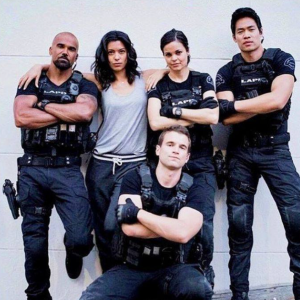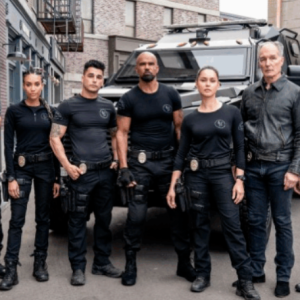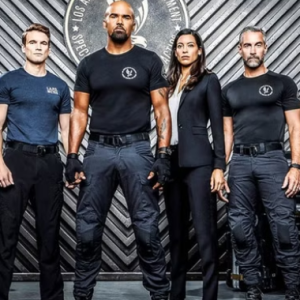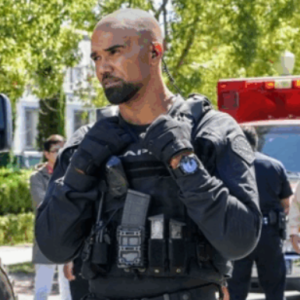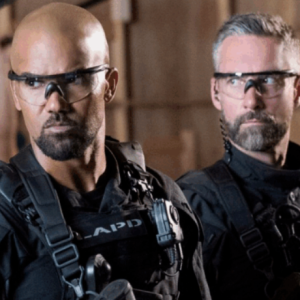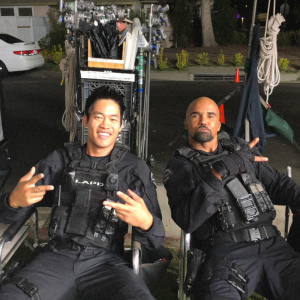From the creative team behind some of television’s most gripping police dramas, S.W.A.T. has carved out its place as a high-octane, character-driven series that goes far beyond its action-packed exterior. More than just a procedural about tactical operations, the show explores themes of loyalty, justice, community, and the delicate balance between serving the public and confronting the harsh realities of modern policing. In an era where law enforcement faces unprecedented scrutiny, S.W.A.T. manages to present a nuanced narrative—one that blends adrenaline-fueled missions with deeply human stories of identity, morality, and sacrifice.
At the heart of S.W.A.T. is Daniel “Hondo” Harrelson, portrayed with commanding presence and layered vulnerability by Shemar Moore. As the leader of the elite Los Angeles S.W.A.T. unit, Hondo represents both strength and compassion, embodying a vision of law enforcement rooted in respect, trust, and community connection. Caught between the rigid expectations of his department and the needs of the neighborhoods he serves, Hondo constantly walks a razor’s edge, striving to be both protector and reformer. His leadership is tested not only in combat but in navigating the social complexities of race, justice, and accountability—making him a modern hero forged by both his past and the present-day challenges of his city.
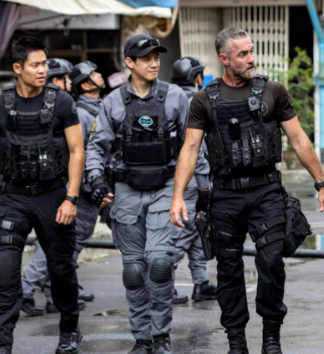
Surrounding Hondo is a diverse and tightly knit team, each member bringing their own strengths, scars, and inner conflicts. Deacon Kay, the steady veteran, serves as the moral compass of the group, balancing his duty with the struggles of raising a family. Street, the brash yet gifted newcomer, represents youthful recklessness colliding with discipline, his journey one of redemption and trust-building. Chris Alonso, the fearless and trailblazing officer, carries not only the weight of being one of the few women in such a high-stakes unit but also the responsibility of standing as a voice for change. Luca, with his mechanical expertise and big heart, provides both technical support and levity, reminding viewers that even the toughest warriors need moments of humanity. Together, their bonds of brotherhood and sisterhood are tested by the relentless demands of their profession, where each mission could mean life or death.
What sets S.W.A.T. apart is its ability to blend pulse-pounding tactical operations with broader social commentary. The show doesn’t shy away from hot-button issues—police reform, racial profiling, gang violence, corruption, and the thin line between justice and vengeance. Each storyline reflects the complexities of modern urban life, where solutions are rarely black and white, and the consequences of every action ripple far beyond the battlefield. The adversaries they face—cartels, domestic extremists, and organized crime—are more than villains; they are manifestations of systemic problems that challenge not only the squad’s skills but their ethics and resolve.
The action sequences are undeniably spectacular, showcasing tactical precision, cutting-edge weaponry, and high-stakes strategy, yet they never overshadow the human core of the series. The city of Los Angeles itself becomes a character, its sprawling neighborhoods, diverse communities, and ever-present tensions serving as both battleground and backdrop. Just as Yellowstone made the land sacred, S.W.A.T. makes the city personal—a living, breathing space that the team is sworn to defend at all costs.
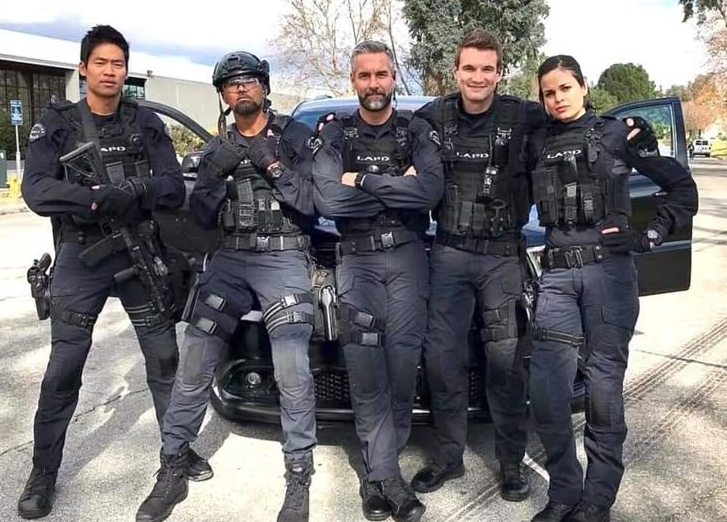
As the series evolves, S.W.A.T. continues to expand on its universe, peeling back the layers of each character’s personal life while also tackling global themes, from terrorism to humanitarian crises. The result is a show that resonates not only as thrilling entertainment but also as a cultural mirror, sparking conversations about what it means to protect and serve in a world that often questions the very institutions sworn to uphold order.
With its gripping mix of action, heart, and social relevance, S.W.A.T. has revitalized the tactical drama genre, proving that stories of law enforcement can be both explosive and deeply reflective. It has become more than just a series about cops and criminals; it is a meditation on courage, sacrifice, and the unbreakable bonds that form when ordinary men and women are thrust into extraordinary circumstances. In doing so, it cements itself as a defining television saga of the modern era—an enduring reminder that the fight for justice is as personal as it is universal.
